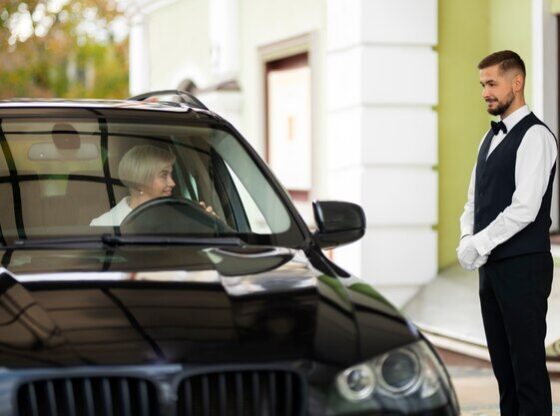Becoming a professional security guard is a big commitment. It involves much more than simply donning a black T-shirt with “security” written across the front in all white caps.
From background screenings to physical and mental preparation, we’re highlighting the skills and training that put the professional security guards in an elite category of their own.
Initial Qualifications
The basic requirements to land a security guard position start with having a high school education and a valid driver’s license. That—plus the ability to pass a background and criminal record check—are the bare minimum of what needs to be in place to get started.
Of course, many professionals have skills and training that span far beyond that. Some segue into the role of professional security guard after a military or law enforcement career, and others enter the field with a background in martial arts or boxing.
Physical, Mental and Social Aptitude
Professional security guards are physically fit. They have to be—they’re on their feet for long periods of time, and it’s vital they possess the strength and endurance necessary to handle physical altercations.
In addition to physical fitness, security guards must be mentally alert. A huge part of the job requires them to be keen observers of the environment: they must spot potential threats at all points of their shift. This attention to detail and situational awareness is a critical component of their job.
Professional security guards are expected to interact with the public with a high degree of professionalism and they must have the confidence and ability to command and control the scene, should the situation call for it. They must be good at communicating—verbal communication and written communication through report writing are both key elements of the job.
If they are working as a bodyguard for high profile individuals, they need to uphold and maintain utmost discretion.
They must also be skilled in de-escalation and conflict resolution. And above all, they must prove that they are able to not only make a decision under pressure—it has to be the right decision. It is critical their judgment is sound—especially in high pressure emergency situations.
Professionals are required to have gone through at least some level of security guard training. The training programs vary—the basic training is usually one to two weeks, and then there are always continuous education training and certificate programs.
Licensing requirements and regulations vary from state to state. The State of California requires all professional security guards to be licensed and registered with the Bureau of Security and Investigative Services.
Job Related Training and Qualifications
The elements that separate professional security guard services from the rest is someone who has the physical attributes coupled with the mental alertness and demeanor, and expands their knowledge in a highly specialized capacity.
Here we’ll go over some of what that entails.
Understand Best Practices for Different Situations
A professional hired to protect a celebrity or politician has different responsibilities than in that role than if they were hired to keep event attendees safe.
A professional security guard knows what they are supposed to do in each of the scenarios and what threats to look out for in different jobs and environments.
Legal Knowledge
Professional security guards have a firm grasp on the laws and regulations within their jurisdiction (both federal and local) and are able to operate with full confidence within the parameters of security authority and citizen’s rights.
CPR and First Aid
Professional security guards know how to render first aid in an emergency while waiting for medics to arrive. In addition, they’re trained in many areas of emergency response from an active shooter situation to helping people evacuate during a fire or natural disaster.
They are also trained to work with other agencies, adhering to the chain of command and level of authority.
Technical Proficiency
Professional security guards must be able to understand how to operate CCTV systems, and troubleshoot if necessary. They must also have a basic understanding of the software and technical programs and systems they use.
Specialized Training
Some of the specialized training professional security guards undergo is:
- Firearms training (for those getting their armed guard certification)
- K9 handling
- Executive protection training
- Self-defense
- Crowd control and management
- Specific scenario-based training
- Cultural training
Most professionals are continuously brushing up and expanding their knowledge of the profession through courses and training opportunities, no matter where they are in their career.
For those looking to hire a security guard—especially if there’s a lot at stake—it’s best to hire a professional from a reputable agency.
Part of what you’re paying for is peace of mind. Knowing that you have someone who’s going to bring their A-game, exercising top-notch judgment no matter what unfolds, is priceless.
Conclusion:
Many professional security guards enter the role with previous law enforcement experience or other specialized job related-training under their belt.
If you want someone who knows what they’re doing and isn’t going to make a decision that could potentially end in tragedy, hiring a professional security guard from a reputable agency is the only way to go.


